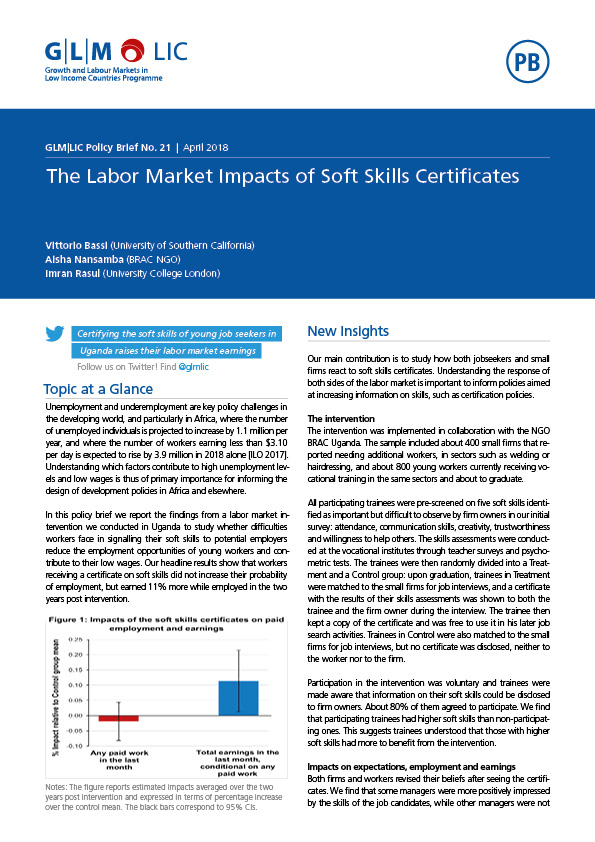Unemployment and underemployment are key policy challenges in the developing world, and particularly in Africa, where the number of unemployed individuals is projected to increase by 1.1 million per year, and where the number of workers earning less than $3.10 per day is expected to rise by 3.9 million in 2018 alone [ILO 2017]. Understanding which factors contribute to high unemployment levels and low wages is thus of primary importance for informing the design of development policies in Africa and elsewhere.
In this policy brief we report the findings from a labor market intervention we conducted in Uganda to study whether difficulties workers face in signalling their soft skills to potential employers reduce the employment opportunities of young workers and contribute to their low wages. Our headline results show that workers receiving a certificate on soft skills did not increase their probability of employment, but earned 11% more while employed in the two years post intervention.
